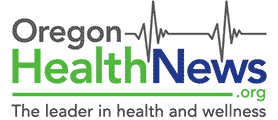Oregon Health News (July 2014) Media and news outlets are still buzzing with reports that the ongoing difficulties resulting from health exchange websites and enrollment systems are continuing to impact insurance coverage.

The Wall Street Journal: Some Still Lack Coverage Under Health Law. Months after the sign-up deadline, thousands of Americans who purchased health insurance through the Affordable Care Act still don’t have coverage due to problems in enrollment systems. In states including California, Nevada and Massachusetts, which are running their own online insurance exchanges, some consumers picked a private health plan and paid their premiums only to learn recently that they aren’t insured (Armour, 7/7).
Los Angeles Times: Healthcare.gov Site Stumps ‘Highly Educated’ Millennial. Read why millennials who struggled to sign up for health insurance on HealthCare.gov have some simple advice for the Obama administration: Make the website more like Yelp or TurboTax. President Obama famously told doubters that they could use the government’s health insurance site to pick a health plan “the same way you shop for a plane ticket on Kayak, same way you shop for a TV on Amazon.” … That turned out not to be the case, of course. A study published Monday by Annals of Internal Medicine lays out some of the specific ways that HealthCare.gov – a centerpiece of the Patient Protection and Affordable Care Act – went wrong (Kaplan, 7/7).
The Washington Post: Six Months Into Obama care, Some D.C. Insurance Brokers Still Wait To Be Paid. When the District launched its federally mandated health insurance exchange last fall, officials went to great lengths to woo professional insurance brokers — launching a special broker web portal, establishing a “concierge” hotline just for brokers and holding broker-only training classes. Despite those efforts, many brokers have yet to be paid for the policies they’ve sold through the exchange, known as D.C. Health Link — generating frustration among professionals who say their patience in navigating the changes wrought by the Affordable Care Act has not been rewarded (DeBonis, 7/7).
Wisconsin State Journal: Wisconsin Insurer Didn’t Activate Dental Policies For 299 Stand-Alone Policies. Nearly 300 people in Wisconsin who applied for standalone dental coverage from a major Wisconsin insurer through the federal health care exchange thought they had policies but didn’t have them activated, according to enforcement records of the state’s Office of Commissioner of Insurance. Waukesha-based Anthem Blue Cross Blue Shield Wisconsin signed a stipulation and order April 24 agreeing to stop offering inadequate insurance, activate appropriate coverage and reprocess any claims that were denied due to the company’s system error, according to documents obtained via an open records request. It is the first and so far only enforcement action taken by state insurance regulators in connection with the federal health marketplace program for the uninsured (Hesselberg, 7/7).
Denver Post: Colorado Exchange Experts Expect More To Drop Health Coverage Colorado’s health-care exchange is expecting nearly twice as many people to drop or decline to pay for their policies, resulting in $1 million less in revenue this fiscal year. In April, the staff projected 13 percent of people will drop or not pay for policies in fiscal 2015, but now they are expecting about 24 percent to drop their policies, according to the latest model. Because Connect for Health Colorado collects a fee on every policy sold through the exchange, the new model expects revenue from that fee to drop from $7.9 million to $6.9 million this fiscal year. And in fiscal 2016, the revised figures show dropped policies going from the 16 percent projected in April to nearly 22 percent, with a nearly $740,000 drop in revenue (Kane, 7/8).
The Associated Press: Missouri Governor Vetoes Health Navigator Limits. Missouri Gov. Jay Nixon vetoed legislation Monday that would have limited who could work in the state as a health insurance guide and blamed a national conservative group for injecting an error into the model legislation. The vetoed bill would have required criminal background checks for people applying for state licenses as enrollment aides for a federally run health insurance website. Anyone with past convictions involving fraud or dishonesty would have been barred from the jobs (7/7).
